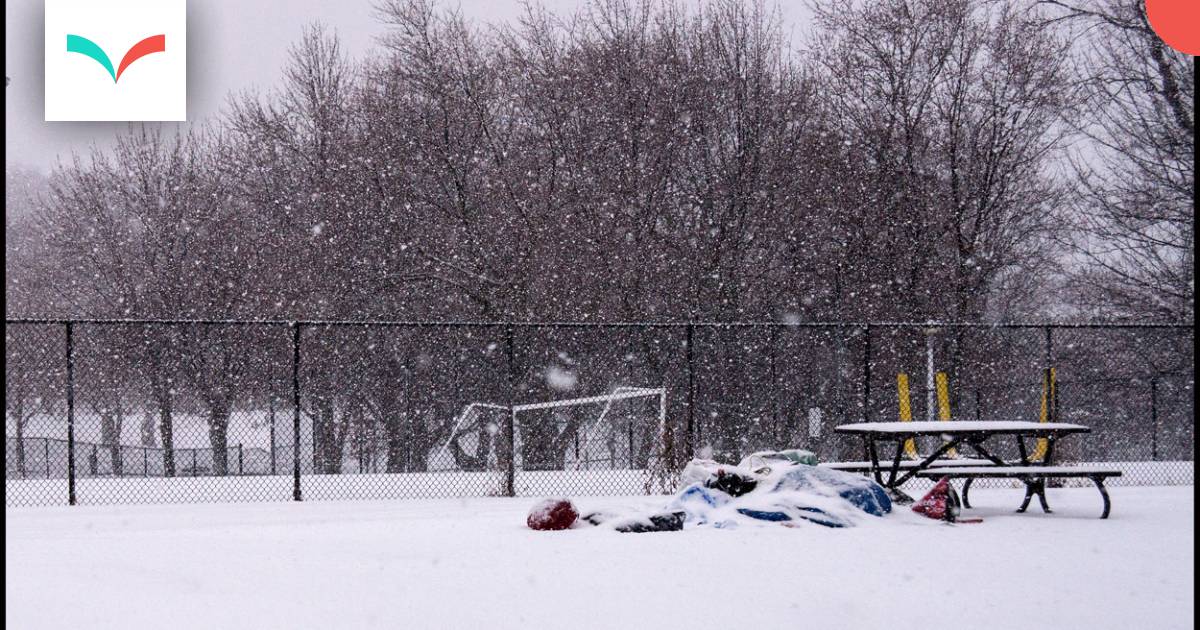Lawsuit challenges Quebec curfew’s criminalization of homelessness
A homeless man diagnosed with schizophrenia has been on the run since Quebec’s curfew came into effect earlier this month.
He’s been jailed twice in the past two weeks, racked up a pair of $1,550 fines for being outside after 8 p.m. and been kicked out of shelters in Laval and Montreal for drinking on site.
Now a law firm is fighting to have the provincial government exempt him and the rest of Quebec’s homeless population from the curfew on the grounds that it violates their constitutional right to life, liberty and security of the person.
In documents submitted to the Superior Court last week, lawyers for Trudel, Johnston and Lespérence presented sworn testimony from “S.A.,” a man whose life has been upended by the curfew.
S.A., 38, lives off $740 a month in social assistance, has an alcohol use disorder and has been diagnosed with schizophrenia — a mental illness that triggers hallucinations and chaotic thought patterns.
The man’s first ticket came on Jan. 12 after police found him warming up in the Viau metro station past curfew. Three days later, officers in the North Shore suburb of Ste-Thérèse fined him for being outside after 8 p.m. Police detained him on the South Shore on Jan. 19 and, later that day, he was arrested and spent the night in jail for being intoxicated in public.
S.A.’s alcohol use has led to temporary bans at Place Dupuis Hotel, the Old Brewery Mission, Maison du Père and Maison bon accueil.
Lawyers say that to subject someone with such impairments to fines amounts to cruel and unusual punishment.
“It’s worse than it’s ever been. I’ve never seen this level of ticketing”
Quebec’s lawyers argued against the exemption in Superior Court Monday, following Premier François Legault’s support for the police’s right to enforce the curfew without exceptions. Last week, the premier claimed that if he exempts the homeless from the curfew, people would pretend to be living on the streets so they could avoid punishment.
His statements came after the death of 51-year-old “Napa” Raphael André, who reportedly froze to death in a portable toilet near Parc Ave. on Jan. 19 after finding a nearby shelter closed.
“The police aren’t having fun issuing these tickets,” Legault told reporters Friday. “They’ve been doing excellent work and I trust their judgement.”
RELATED:
The provincial government worked with the City of Montreal to set up hundreds of new beds at Saputo Stadium last week, and Quebec Indigenous Affairs Minister Ian Lafrenière announced there would be a warming tent in Cabot Square by Friday. As of Monday, the tent has not materialized.
Meanwhile, a study by the research group RAPSIM has cast doubt on Legault’s claims regarding the police’s “good judgement.”
The study reviewed thousands of court documents, finding that between 2014 and 2018, officers in Montreal handed out 50,000 fines to homeless individuals for various minor bylaw infractions. The fines totalled about $17 million.
Céline Bellot, one of the study’s co-authors, says the situation is out of control.
“It’s worse than it’s ever been. I’ve never seen this level of ticketing,” said Bellot, the director of Université de Montréal’s school of social work. “Everyone knows the tickets don’t solve anything. No matter what you think of homelessness, you won’t fix someone’s addiction problems by fining them.
“What our study shows is that the homeless are being targeted, Indigenous people are being targeted, and Indigenous women in particular.”
In 2018, homeless Indigenous folk were ticketed five times more than they had been in 2012.
“The irony of the fines is they actually keep them living on the streets”
In a statement sent to Ricochet, a spokesperson for the Montreal police insisted officers are merely following a public health order. They also pointed to a unit of the police whose job it is to help put homeless people in touch with services they need rather than punish them for bylaw infractions.
“These are good efforts but they’re small scale,” said Bellot. “There are good actors within the police department and there’s been an acknowledgement that criminalizing the homeless doesn’t help them. That’s good. But clearly the message isn’t getting through to people on the ground.”
Legault said Friday he empathizes with the homeless and knows “they’ll never be able to pay those fines.” Even so, they face serious consequences for not paying down their debt to the courts.
In S.A.’s case, he owes $40,000 in tickets to various municipalities in and around the island of Montreal. Since he can’t afford to pay that down on an income of less than $800 a month, he would have to do hundreds of hours of community service to square off his debt.
“The irony of the fines is they actually keep them living on the streets,” said Bellot. “Until they’re paid off, they go on a person’s credit score. You can’t renew your driver’s license or take out a bank loan until that debt is cleared. It takes away the tools a person would need to climb their way into a stable life.
“It is actually making the crisis much worse.”

